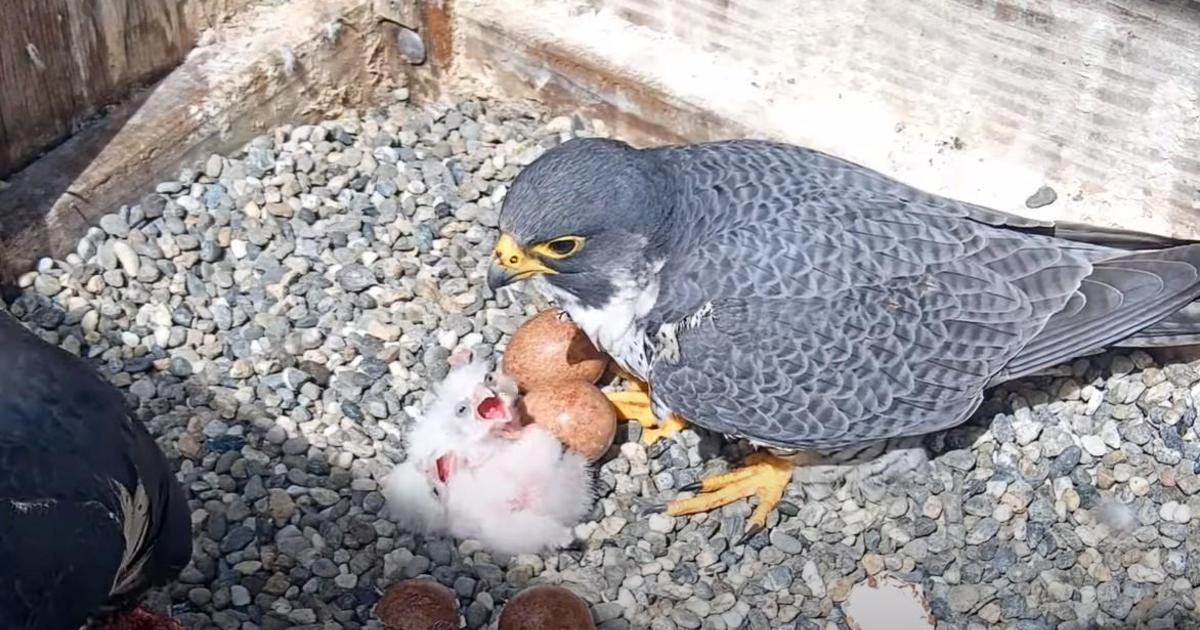NorCal Lab Analyzing Animal DNA In Murder Investigations
DAVIS (KPIX 5) - A Northern California laboratory is providing crucial evidence in murder investigations using DNA extracted from the pets of crime victims.
The Forensics Unit of the Veterinary Genetics lab at the University of California, Davis is the go-to lab for getting results that qualify for convictions in court.
"We are the only accredited laboratory in the world doing this type of work," said Beth Davis, a scientist with the UC Davis lab.
The scientists here isolate animal DNA for use in cases ranging from abuse to horse-breeding to cold-blooded killings.
"If you own a dog or a cat, you know, you've got fur on your pants. You go to your car, it gets in your car and you're carrying their DNA, their signature with you everywhere you go," said Davis.
In 2008, Steven and Linda Riley were stabbed to death in their home in Sacramento County, their bodies discovered after they failed to show up to their jobs.
The bloody crime scene did not have any blood from any suspect, and the couple's family had no idea who could have done it.
Eventually, the suspicion centered on the couple's son, Matthew, even though there was no physical evidence pointing to his involvement – until prosecutors took a close look at a pair of boots found on the roof of his former apartment building two years after the murders.
"The idea was that he most likely killed in his socked feet and put his socked feet back into those boots and drove home," said Sacramento County Deputy District Attorney Chris Ore.
There was no blood found on the boots, but after tearing them apart, investigators found a single hair. DNA testing at the UC Davis lab showed it had an 87 to 90 percent chance of belonging to the Rileys' dog, Winston.
"In this case, the dog hair linked Matthew Riley to boots he had hidden, and he hid them for reasons that he knew, which was that those boots he believed would link him somehow to this crime," said Ore.
Matthew Riley was convicted in 2011 of the murders and given two life sentences without parole.
In another case, 23-year-old Dane Williams disappeared while attending a convention in San Diego. He was drugged, sexually assaulted and murdered - his body discovered days later in an alley wrapped in a comforter.
The comforter was covered in dog hair. "And so we were able to match those dog hairs to (the suspect's) mother's dog and he lived at home with his mother," said Davis.
The DNA evidence from the dog, along with other evidence, helped convict 41-year-old Philong Huynh of killing Williams. He was sentenced to life in prison in 2011.
The lab takes on cases for prosecutors and defendants alike. Their testimony is relied on in cases from as far away as Europe.
The UC Davis scientists say tests for animal DNA are being refined all the time, and the investigative community is only just starting to tap the tool's potential.
In California, animal DNA has been used in at least three criminal cases, according to Ore. Also this year, cat DNA linked a man to a killing in Great Britain.
In some cases, animal DNA can provide a voice to the one who might be the sole silent witness to a crime - the faithful pet who watches it happen. "It can be very powerful evidence," said Ore.
(© Copyright 2013 by CBS San Francisco. All Rights Reserved. This material may not be published, broadcast, rewritten, or redistributed.)



